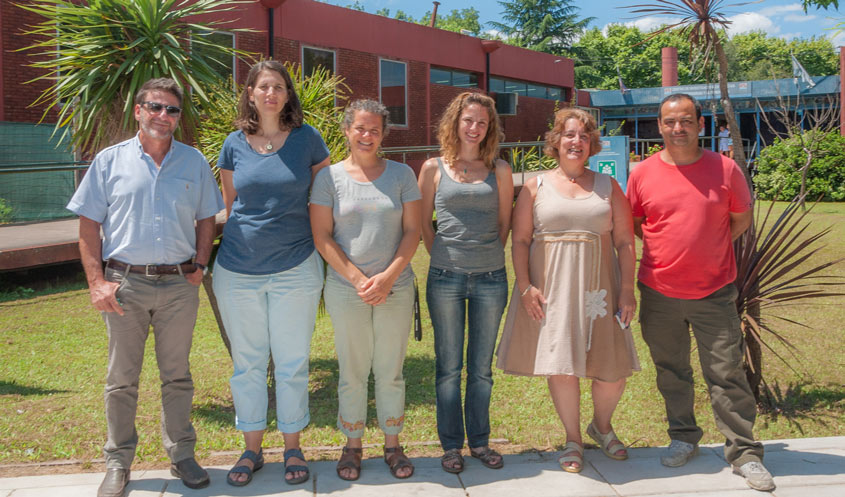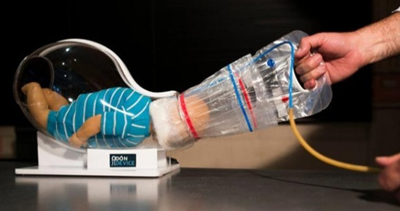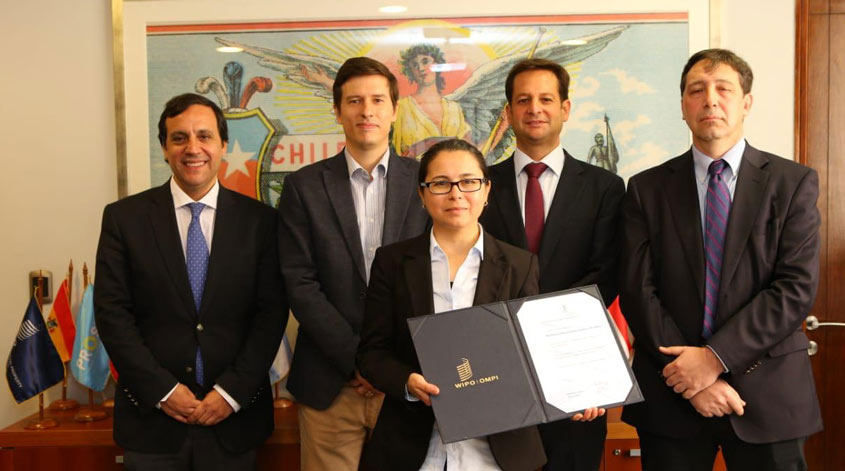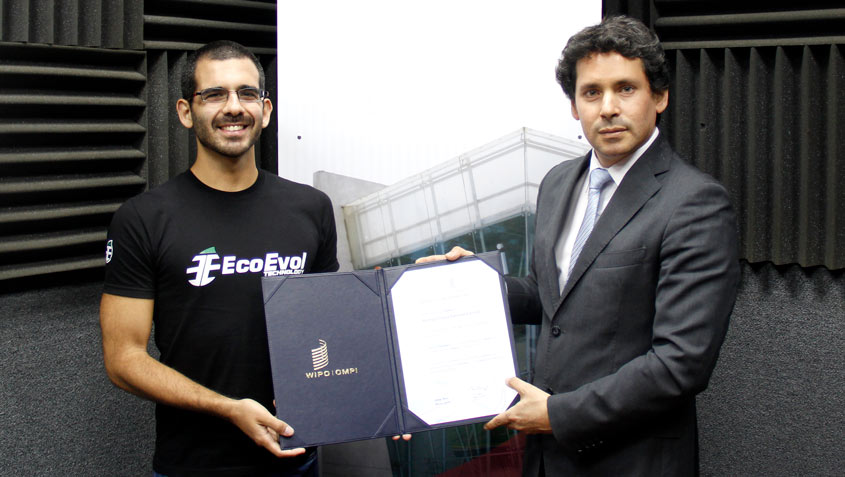
Latin America’s first international patented invention competition
By Constanza Zülch and Francisco Carrasco, Communications Division, National Institute of Industrial Property, Chile
In September 2018, with the support of the World Intellectual Property Organization (WIPO), PROSUR, a regional organization mandated to foster cooperation in the field of industrial property, launched its first Patented Invention Competition. The aim of the competition was to promote innovation and to encourage greater use of the IP system, in general, and the patent system in particular, across Latin America.

“The competition has enabled us to promote greater awareness across the region about the role that patents can play in incentivizing innovation, in improving the region’s competiveness and in driving its economic growth,” said PROSUR’s acting President, Harry Peralta López.
“Every year, more than 50,000 patent applications are filed in Latin America. Our aim in running the competition is to encourage much greater use of the patent system and, of course, to demonstrate the region’s capacity to develop ground-breaking and commercially valuable inventions.”
About PROSUR
In 2009, various countries in Latin America joined forces to set up PROSUR, an entity with a mandate to foster cooperation in the field of industrial property (e.g. patents, trademarks, designs, geographical indications) across the region. In addition to encouraging greater technical collaboration among the IP offices of its members, PROSUR plays a key role in promoting knowledge transfer and entrepreneurship in support of the region’s social and economic development.
PROSUR’s members include: Argentina, Brazil, Chile, Colombia, Costa Rica, Dominican Republic, Ecuador, El Salvador, Nicaragua, Panama, Paraguay, Peru, and Uruguay.
Rolling out the competition
The call for applications to enter the competition was open to the 13 member countries of PROSUR (see box). Following a rigorous screening process, 23 applications – of which 11 had filed patent applications under WIPO’s Patent Cooperation Treaty – made it to the competition. Applicants were required to provide proof that their invention was covered by a patent or utility model registration that had been granted within five years prior to the date of the competition’s launch.

Jorge Ernesto Odón, guides a plastic sleeve through the
birth canal to surround the baby’s head. Air is pumped
into the sleeve to inflate a plastic chamber that gently grips
the baby’s head, allowing it to be pulled safely from the birth
canal without inhibiting the baby’s breathing
(photo: Courtesy of INPI, Argentina).
“The competition was developed not only to give special recognition to Latin American innovators, but also to encourage innovation and creativity, which are key elements for ensuring development throughout the region,” noted Mr. Peralta López.
The applications were evaluated by a jury of experts from the International Federation of Inventors’ Associations, the Max Planck Institute, the Inter-American Development Bank and Marca Sur Magazine.
The winners
The winners, announced in January 2019, hail from Argentina, Chile and Peru. Entrants for the competition included some of the best patented inventions in the region. All of the inventions that made it to the final selection were evaluated according to the following criteria: potential to generate social and economic benefits; environmental impact; the number of countries in which they were protected; and gender focus.
The competition’s top prize went to a team of researchers from Argentina’s National Agricultural Technology Institute for their work in combatting the harmful effects of rotavirus, a pathogen that kills over 550,000 children globally every year.
The judges chose the work of the winning team – Thomas Surrey, Aurelien Olichon, Silvia Sebastián Gómez, José Ángel Martínez Escribano, Andrés Wigdorovitz, Lorena Laura Garaicoeachea, Gisela Ariana Marcoppido and Gladys Viviana Parreño – because they determined it would play a crucial role in improving the well-being of children in Latin America and beyond.
The initiative took shape in 2011, when the researchers began looking for a solution to neutralize different rotavirus variants using nano-antibodies from camelid herbivores, such as llamas, alpacas, and vicuñas, which are common in Argentina. One of the team’s objectives was to make dairy products containing these antibodies to protect children under the age of five from diarrhea.
“The invention is an important contribution to society and with this achievement, the National Agricultural Institute has earned international recognition that reaffirms the quality of its research and creates an opportunity to transfer its innovations to society,” said Juan Balbín, President of the Institute.
The team won the WIPO IP Enterprise Trophy and the opportunity for one of its members to present their work at the annual International Exhibition of Inventions in Geneva in 2019. This was an excellent opportunity for the team to showcase its work, meet with other inventors and potential investors and to expand its network.

An invention to improve childbirth wins second place
Argentinian mechanic Jorge Ernesto Odón won second prize for his low-cost infant delivery device, which enables safer childbirth, particularly during difficult labor and delivery, without the need for medical expertise, making it an ideal option for settings where access to healthcare professionals is limited. The inventor’s ambition is for this innovative device to become a leading alternative to conventional methods of assisted delivery.
“It’s a source of pride for the country that the strength of our inventors is recognized with awards given to two Argentinian patents. Earning these awards affirms the creative capacity of Argentinians and the power of innovation and intellectual property for the economic development of our country,” commented Damaso Pardo, President of INPI, Argentina’s national IP office.
Chile and Peru in joint third place
Third place was shared by two inventions – one from Chile and the other from Peru. The Chilean invention, developed by researchers from the Pontifical Catholic University (UC), is a vaccine that seeks to protect children, in particular, against the respiratory syncytial virus (RSV), the most common cause of bronchiolitis and pneumonia in children under one year of age. Their invention, one of the first to treat the virus, promises to have a direct impact on children’s health.
The vaccine has passed Phase 1 trials and the researchers – Alexis Kalergis Parra, Pablo González Muñoz and Susan Bueno Ramírez – are now looking for new funding to commercialize the vaccine and continue their research.

“As UC academics and researchers, we are very proud of the international recognition that our scientific work has earned from PROSUR. It is particularly gratifying that through the work we have done at the university, Chile is one of the three countries recognized as innovative, from science and knowledge to technologies that can benefit society,” said Professor Kalergis.
With broad potential application in the automotive industry, the Peruvian invention, developed by Rodrigo Coquis Sánchez-Concha, eliminates bacteria in fossil fuels to prevent the failure of fuel injectors and pumps. Installed in fuel tanks of vehicles, the device reduces fuel consumption and carbon monoxide and smoke emissions.
“This new and innovative device comes in four versions that can be installed in motorcycles, light automobiles and tractors, as well as in the fuel tanks of mines and boats,” said the award-winning inventor, Rodrigo Coquis.
Recognition for female inventors
The first edition of the PROSUR competition included a special award exclusively for female inventors. The award distinguished those inspiring women who have contributed to the development of new knowledge through their technological innovations and who are a source of inspiration for new generations of female scientists and inventors.
The prize was awarded to the four female members of the Argentinian research team who won the first prize, namely, Lorena Laura Garaicoechea, Gisela Ariana Marcoppido, Gladys Viviana Parreño and Silvia Gómez-Sebastián.
The Secretary of Promotion, Protection and Technological Change at Argentina’s national IP office, INPI, Graciela Guzmán, applauded their achievement. “I would like to commend the female researchers of this team who earned the award for “Female Inventors” and are just some of the many female professionals and entrepreneurs who contribute to the economic development of our country on a daily basis. They remind us of the enormous responsibility we all have to continue working towards making a more equal and inclusive society and market a reality.”
All laureates received a certificate of merit from WIPO. These were awarded at separate ceremonies in Argentina, Chile and Peru in March 2019.
The WIPO Magazine is intended to help broaden public understanding of intellectual property and of WIPO’s work, and is not an official document of WIPO. The designations employed and the presentation of material throughout this publication do not imply the expression of any opinion whatsoever on the part of WIPO concerning the legal status of any country, territory or area or of its authorities, or concerning the delimitation of its frontiers or boundaries. This publication is not intended to reflect the views of the Member States or the WIPO Secretariat. The mention of specific companies or products of manufacturers does not imply that they are endorsed or recommended by WIPO in preference to others of a similar nature that are not mentioned.